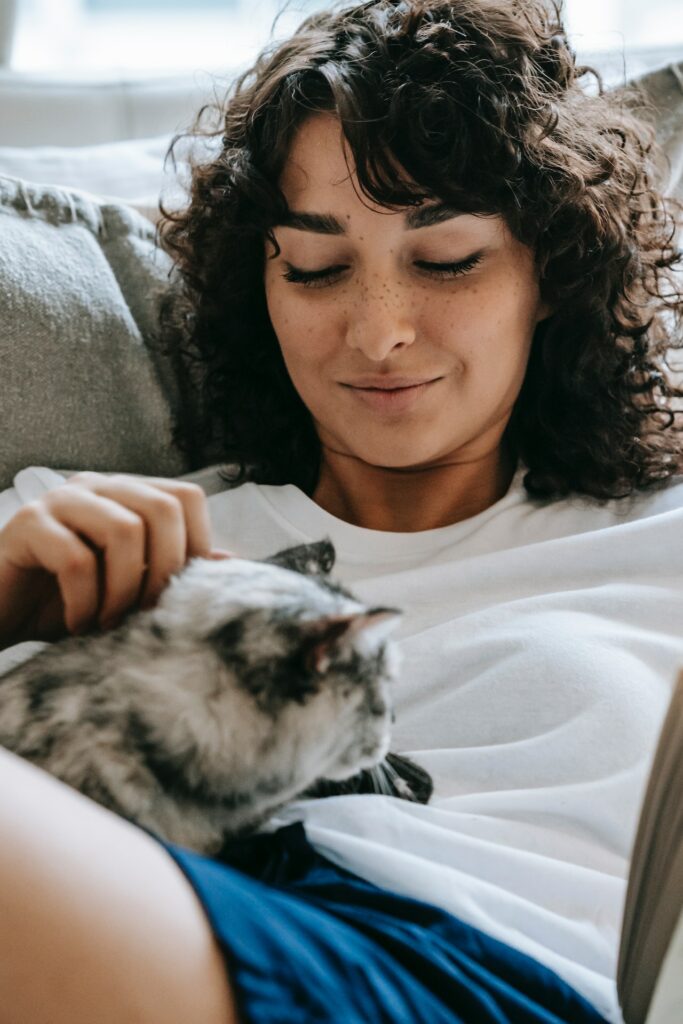Did You Know That A Cat’s Purr Does Not Always Mean They Are Happy
It is widely accepted that cats purr when they are content and happy. However, there are other reasons why cats may purr other than when they’re feeling pleased. In this article, we will explore the various meanings of cats purring and discuss the implications of their behaviour.
What is Purring?
Purring is a low-frequency sound that cats make as a way to communicate with one another as well as their owners. The sound is made by breathing air out of their vocal cords in short bursts, creating a rumbling vibration that is usually quite soothing for people to hear. Depending on their energy level and mood, a cat may purr more or less loudly.
Why Do Cats Purr?
Cats can purr for multiple reasons: when they are content and happy, when they feel safe and secure, when they are in pain or discomfort, or even when they are stressed or scared. While it is often assumed that cats only purr when feeling satisfied, research has revealed many more nuances to understanding them better.
Happy & Content Cats Purring
The most common type of purring from cats is because they feel happy and content; the same sound they would make while cuddling up to you on your lap! Generally speaking, these types of purrs have higher frequencies which signify an exciting level of joyfulness in your cat’s behaviour. This could indicate that your cat feels relaxed around you and trusts you enough to be comfortable making such sounds around you.
Stressed & Scared Cats Purring
Contrary to popular belief, cats also purr when frightened or anxious! These purrs tend to have lower frequencies than those indicating happiness due to being more subtle and quieter than usual. Research has shown us that this kind of behaviour can be seen in situations such as during vet visits or if the cat senses something unfamiliar in its environment which causes them stress – so if your cat does this during stressful periods in its life, then it’s natural for them to want comfort from you through purring. It’s important not to punish your feline friend for exhibiting these behaviours. Instead, try reassuring them by talking softly or petting them until the situation passes.
Pain & Discomfort Cats Purring
In addition to expressing feelings associated with fear and anxiety, cats also tend to emit lower frequency sounds known as “solicitation purrs” under certain circumstances where pain or discomfort is present too! Solicitation purring typically occurs when a feline friend has been injured somehow (e.g., bitten by another animal) or experiences some physical distress, such as bladder infection symptoms (e.g., frequent urination). When this happens, cats usually act extra affectionate towards the people who care for them to solicit attention from them so that help can arrive quickly – hence why it’s important not to ignore any sudden changes in behaviour from our beloved felines so we can respond accordingly!
Conclusion
Cats may not always vocalise their happiness; sometimes, they try to tell us something else entirely! Us humans need to recognize that behind every meow lies a unique message depending on what kind of emotion our furry friends may be feeling at any given time – so next time your kitty starts up with some low rumbles, don’t just assume it means everything’s alright; take time out and look out for signs telling us otherwise because our little bundles of joy deserve our full attention no matter what state they may be experiencing!
If you want to ensure that your beloved feline is always taken care of, no matter what situation they may find themselves in, consider investing in pet insurance from Furrr.co.uk! With an extensive range of policies tailored for cats, Furrr.co.uk can help protect your furry friend, so you don’t have to worry about unexpected costs should the need ever arise. Don’t wait until it’s too late – get your cat insured today with Furrr.co.uk!










